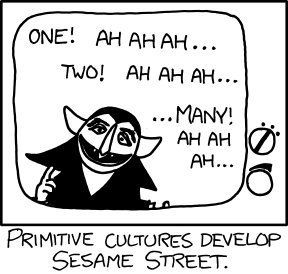Here’s an article by Guy Deutscher on language and how it influences thinking. Mercifully, Deutscher discusses this fascinating topic without trying to further inflate its public appeal by vague claims on how it all devalidates generative linguistics and most of all Chomsky (it sure sounds cool to argue against a big name, and why not an entire field?)–as Lera Boroditsky unfortunately did here. As if this research was only interesting if it also showed that someone else’s research is worthless. Daniel Harbour has some insightful comments on the latter article on his blog, and points out that it’s unclear just how this is supposed to invalidate the kinds of assumptions many generative linguists make these days. If you are (as most linguists) mostly interested in the nuts-and-bolts of how language works in all its beautiful intricacy it can be exasperating to watch how far the level of argumentation often drops when people start debating universal grammar (in my experience that tendency exists on both sides of the debate). A lot of linguistic research is interesting independent of whether one believes in universal grammar, and it seems to me that a lot of the work and the results don’t bear on this question at all, and don’t even rely on the assumptions that Daniel lists.
Besides, it’s much more fun (at least if you’re a linguist) to read about the exciting research on how cross-linguistic differences influence how we think that is conducted in Boroditsky’s lab and elsewhere without the unnecessary swipes. Another Daniel, Daniel Casasanto, a recent graduate from Boroditsky’s lab, wrote an interesting article a while ago on linguistic relativity and the debates it has generated, which does a nice job at clarifying what this renaissance in linguistic relativity research is about and what it is not about, aptly titled Who’s afraid of the Big Bad Whorf?

